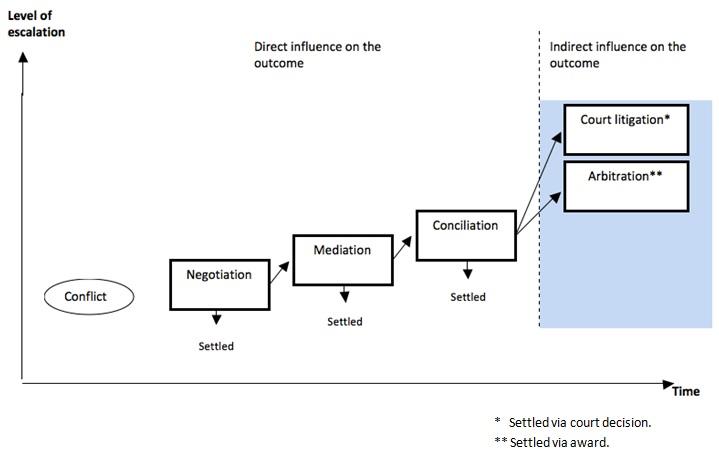
Despite the complexity that surrounds intellectual property law in general, alternative dispute resolution remains a vastly underutilized tool. This doesn't quite make sense, especially considering how time-consuming and expensive general litigation is. To make matters worse, IP litigation cases last longer, owing to the complexity of IP terminologies. With litigation costs rising gradually year after year, it's time that entities rethink their litigation strategy to consider alternative dispute resolution to resolve IP related disputes. In this blog, we explore the possibility of resolving a charge of trademark infringement through common alternative dispute resolution methods.
Privacy
Common alternative dispute resolution methods such as arbitration, mediation, and negotiation involve private settlements. The fact that sensitive information remains private can be seen as a positive and a negative, depending on the way you look at it. For instance, a closed-door negotiation that allows a potentially invalid trademark to remain valid is a concern for the greater public. On the other hand, there is the question of the private entities’ right to privacy and confidentiality. Let us consider the dispute between Adidas and Forever 21, where Adidas accused Forever 21 of using the classic trademark of 'three stripes’. The dispute was resolved through a private settlement; there was no scope for the public to avail the specifics of the matter,thus protecting their privacy and reputation.
Time and Money
An undeniable advantage of alternative dispute resolution methods is that it has the potential to save both parties a great deal of time and money. Getting through litigation is a challenge, considering the lethargic nature of standard court proceedings. On the other hand, consider the fact that there is a high likelihood that the two disputing parties come to a resolution within a single round of negotiations. As an added advantage, the two parties also manage to drastically reduce the legal fees they have to bear if they go through the alternative dispute resolution route. In the case of trademark infringement, where the charge is legitimate, it is in the best interests of the defendant that the damage is insulated to an extent.
Flexibility in Solutions
Here's another factor that should be considered while evaluating the merits of approaching a case of trademark infringement through alternative dispute resolution - the potential for a middle-of-the-road solution to the quarrel. The problem with litigation is that it is generally a 'winner takes all’ process. In the event of a mutlifacited case of trademark infringement where there is uncertainty about the legitimacy of the charge, it can be safely concluded that a middle-of-the-road resolution is more likely to satisfy both parties, for a variety of reasons. Despite the advantage of flexibility in solution, if the plaintiff has abundant clarity about the deliberate nature of the infringement, the course of litigation remains a viable choice.
Having elaborated on the merits and the flipside to approaching trademark infringement through alternative dispute resolution, we believe you should rely on the judgment of an experienced trademark lawyer to determine the best course of action for your case. Contact our legal team and let us examine every facet of your legal challenge to guide you in the best possible way.





